INSIDE THE WHITE TUBE. A RETROSPECTIVE VIEW ON THE TELEVISION WORK OF JEF CORNELIS
EXHIBITION
Opening: Saturday January 30th 2016 // 18:00 - 21:00
Jef Cornelis began his career as a director for the Arts Division of BRT Television in Flanders - which would later become VRT broadcasting - in 1963. Between 1964 and 1998, he directed more than two hundreds television programs, including debates, live broadcasts, films on modern art, architecture, topics in cultural affairs and the Flemish landscape. In Inside the White Tube. A retrospective view on the television work of Jef Cornelis, Argos pays homage to Cornelis and presents a selection of works that maps his career and show how Belgian television has evolved during the last four decades of the 20th century.
In front of such a wide range of themes and the amount of productions, the exhibition takes on the impossibility to give a complete overview on his career and avoids an encyclopaedic approach. Instead, the choice is to highlight and articulate particular aspects of Cornelis' work in order to cluster important themes around specific television formats. The exhibition is therefore structured in four sections in which the aesthetic strategies employed by Cornelis in order to undermine the medium are revealed and interrelated.
The first section - called SPEAKING IN TONGUES - of the exhibition follows Cornelis' engagement with fine arts through a selection of artists' portraits he directed between 1969 and 1990. Although a pretended adversity, Cornelis has always been personally very involved in contemporary art: in 1969, he was one of the founders of A379089, an alternative art centre in Antwerp that declared itself an 'anti-museum' or 'anti-gallery'. Later on, in 1995, he curated the group exhibition Call It Sleep - with works by, among others, Rita McBride, James Ensor, Craigie Horsfield, On Kawara, René Magritte, Panamarenko, Cindy Sherman – at Witte de With Center for Contemporary Art in Rotterdam. For the Flemish television, after a series of short reportages for the series Zoeklicht (Searchlight) and films about international manifestations such as Sonsbeek buiten de perken in Arnhem, Venice Biennial or Documenta in Kassel, Cornelis set his contemporary art activities aside in 1972, only to pick them up again later, in the 1980s, when he contributed for the series Het gerucht (The rumor), Kunst-zaken (Art matters) or Verwant (Related).
The second section of the exhibition - called ARGUMENTS - focuses on a specific practice of Jef Cornelis that is the debates. As early as the beginning of the 1980s, he began dealing with television at its most basic level, as a mean of communication and a vehicle for conveying information, so he focused into the talk show format where he was exceptionally creative in applying its imperatives. Although he was already being labelled a 'television artist' and we can sometimes assume that the 'subject' of his programs was simply a supporting layer, in his talk shows Cornelis puts a particular importance on the contents: just to give a varied inventory of the approached subjects, we can mention the art of cooking, sentimentality, collecting art objects, the figure of Don Juan, humour and entertainment, the origin of the department store, Art Deco or the flute. Among these disparate topics, here we present four different examples of talk shows directed by Cornelis between 1984 and 1993. The choice doesn't only aim to show wide range of themes, but also to track how, within this practice, Cornelis developed unconventional methods.
The purpose of the third - called DECADES - and fourth sections - called COUNTERPOINTS - is to clearly point the dissection of television itself operated by Cornelis during his career. From the beginning, there was a friction between Cornelis' approach and television. In 1964, he claimed that Flemish image-makers were still operating at the 'parish hall' level: amateur amusement provided by ignorant producers for underdeveloped viewers. At that time, there were few people in television production who were in fact familiar with or able to handle the language of television. In this context, he perceives himself as a parasite, one who uses the system to do his own work and, for this reason, his films lie beyond the usual television aesthetic co-ordinates. The films presented in DECADES give an overview about Cornelis' style that spams from documentary to film essay and live broadcast, but they also summarize his favourite subjects: Belgian architectural heritage, urbanism, contemporary art, social and intellectual history. In the COUNTERPOINTS section, the films undermine previous positions and present other broadcasts which complete or oppose the other presented works. In this sense, it's an alternative way to underline the richness and the unconventional approach of Cornelis' style.
Gerelateerde evenementen
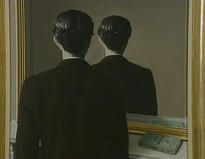
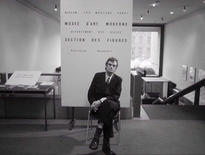
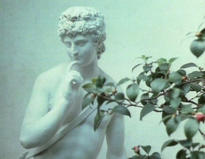
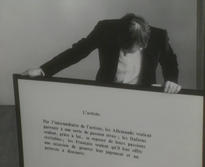
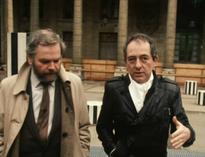
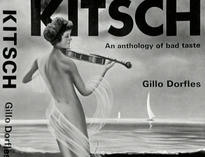
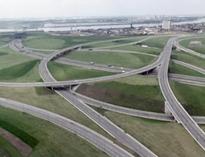
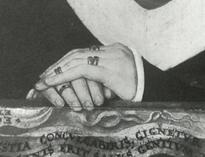
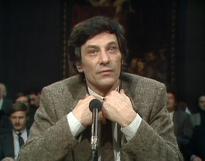
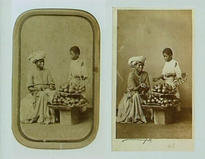
-
zo 31.1.2016
- zo 27.3.2016
11:00 - 18:00 -
Praktische info
Argos
Werfstraat 13 rue du Chantier
1000 Brussels
info@argosarts.org
+32 2 229 00 03
Opening hours:
Wednesday to Sunday, 11:00 to 18:00NEW: Open late night until 21:00 every last Wednesday of the month.
Entrance Tickets:
6 euro Individual visitor4 euro Students, seniors (+60), unemployed
0 euro Kids, teacher, ICOM card members, press, IKT members
NB: The entrance ticket is a personal pass that gives you unlimited access to the exhibition. - Kunstenaars
- Werken
- De kleuren van de geest
- Kitsch Gillo Dorfles
- The street
- KUNST ALS KRITIEK. WANNEER IS KUNST WEL KRITIEK? 3. Wanneer een cartoon aan politiek doet
- Marshall McLuhan
- Daniel Buren (Palais Royal)
- Het Koninklijk Paleis, Antwerpen, ICC
- KUNST ALS KRITIEK. WANNEER IS KUNST WEL KRITIEK? 4. Wanneer de kunstenaar in alle ernst speelt [BRT version]
- CONTAINER 10: exotismen
- Stanley Brouwn 6 stappen 10x (MTL Gallery Brussel) + Karel Appel
- James Lee Byars: World Question Center
- De langste dag
- De Koninklijke serres van Laken 1877-1902
- The Music Box
- Jan Vercruysse, 1990
- Filip Van Snick: Stall-Ology
- Oog en hand als uitdrukking 01
- Daniel Buren
- Marcel Broodthaers °1924
- Ijsbreker 16: Lichamen - toonbeelden
- Abdij van Park Heverlee
- C'EST MOY QUE JE PEINS, Wie alleen staat heeft recht van spreken
- Jacques Charlier
- Beeldende kunst in België, 1986
- Oog en hand als uitdrukking 02